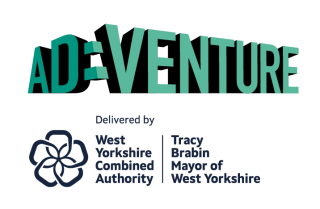
Top Tips for Acing Interviews
by The Yorkshire Mafia , Nov 12
The headline isn’t strictly true, these tips can be used at any time, but given we’ve just been plunged into our second national lockdown, it seems somewhat fitting.
We know that there are people out there that are struggling and others who just want a change of focus and a new challenge to get excited about. Whatever the situation, as a recruiter with a team of talent acquisition experts on-hand, we thought we would offer you some guidance.
Being helpful during hard times is something that has become synonymous with iSource Group and The Yorkshire Mafia. It is what we do, and it is embedded within our values and our culture. We very much believe in creating communities for the greater good and we hope that this will be further evidence of that.
So, here goes.
Do your research
There are so many horror stories about candidates turning up to interviews without even taking the time to open the web page of the company they are visiting.
This sends a clear message that you are not really interested in the job. If that’s the case, it’s fine, just stand aside and give someone who has the commitment and willingness the opportunity to secure the position. Furthermore, don’t waste the time of the interviewer.
You will be asked questions during an interview. It’s the way it goes. At some point they will be testing your knowledge of the business and what it has achieved or stands for. Being equipped to handle those confidently will make a big impression.
Do your homework and review the website, any social feeds and news that has featured about the company in recent weeks or months.
Don’t leave things unsaid
It’s not a matter of telling the truth, the whole truth and nothing but the truth, however honesty remains the best policy.
Start as you mean to go on. If you’ve had five jobs in five years, then explain why. Turn the negatives into positives. Consider the skills you’ve picked up and what you have learnt. How can these lessons be transferred and how do they apply to the role you want?
Don’t leave things to chance. Any gaps will become glaringly obvious to the interviewer and they just might stop you from getting a position you deserve.
Ask questions
Interviews are a two-way street. Not only does asking questions give you the chance to share your knowledge about a business, it also opens up the conversation. It is an opportunity to find out the information you want to know about a company.
This could be about culture, values, what the organisation does to give back to the community or how progress is tracked and what training is on offer. Being prepared and having questions planned shows that you are interested and organised.
Get your body language right
There are few things worse than sitting across from someone who is slouching, picking their nails or looking generally disinterested. Remember, those conducting the interview are giving up their time in the same way that you are investing yours.
Sitting up straight and having good eye contact will be obvious to some, but it doesn’t come naturally to all. If you are nervous, then tell the interviewer. It may account for some mannerisms they weren’t expecting.
It’s ok to be nervous. It shows that you care and that you are taking this seriously. It may seem like a simple suggestion, but you should also remember to smile! This will defuse the tension and set the right tone.
Don’t be passive
This is your chance to shine. Take centre stage and own it. Lead and direct the conversation where you can and get across the points that you really want to make.
Think very carefully about the tone of voice that you are using. If you are defensive or aggressive, you’re not going to make a good first impression. Even when questions are challenging, remember there’s a distinct difference between being confident and having an attitude.
Win the interview early
It’s quite often the case that interviews are won and lost in the first few minutes. Start lively, align yourself with the interviewer and get some killer points across. It goes back to being prepared. Have some facts ready to share about the business and its latest success or achievements.
Shift the focus to the organisation and ask about clients or the products and services that it offers. Don’t just choose the most obvious examples, do some digging and come up with soundbites that show you have done your homework.
Be interested and engaged. If something excites you then show how passionate you are. Don’t dilute your enthusiasm. It could set you apart from another candidate.
It’s not a fight or a contest
The interviewer wants you to do well. If you want to work at the company then start building the relationship in the interview.
Give honest answers. Add some personality but remain professional. Show that you could be a valuable member of the team. Give examples of how you have worked in the past and the results you have delivered.
Remember to keep the tone light and to try to read the situation. At no point is being unprofessional a good idea, however it’s not unheard of for people to enjoy an interview. This is the potentially the first day of your new career, give it your best shot.
Don’t lie or embellish your achievements
It is almost certain that at some point, if you lie, you will be caught out. The difference between when you tell tales as a child and as an adult is accountability. The seriousness of manipulating the truth in an interview could tarnish your reputation for life.
Interviews aren’t a game. They are an opportunity and a pathway to future success. Answering a question wrong is one thing. Lying is unforgiveable and says a lot about a person and their values.
Get your key points across
Rather than having a long list of things that you want to say and trying to cram everything into an hour, prepare your key points in advance. Think about the things that matter to you most and make sure you get them across.
Be succinct and clear. Explain your points and give evidence to back up any claims that you make. Referencing previous employers and the work that you were most proud of is not a bad thing. Focusing on the negative and sharing all that was wrong with the business wouldn’t be advised.
Before you leave
You will probably have a good idea of how well you have done at the end of an interview. It is often referred to as a gut feeling. Rather than leave anything to chance, if it is appropriate and right to do so, ask if you have done enough to progress.
If the answer is no, then find out why. Ask for feedback on how you can improve and what you need to work on. Leaving a lasting good impression is not going to do you any harm even if you don’t get the job.
Chris Neiger, Senior Programme Manager at Cox Automotive UK, says: “I always ask if there’s anything that has caused a prospective employer to have doubts about me as a candidate or that they wished I’d provided a more detailed answer on.
“Some employers will see this as cheeky but I’ve found the good ones will like the question as it shows confidence, determination to make the best possible impression and a willingness to take feedback, plus means I can address any areas I might unknowingly have underperformed whilst I’m still in the room.”
Although every business is different and every job will come with its benefits and challenges, we hope that these tips will help you to plan for your next opportunity. Some people thrive in interviews and others find it really difficult. It’s all down to personality, and while we cannot change who we are, we can prepare to be the very best version of ourselves.
We wish you luck.






